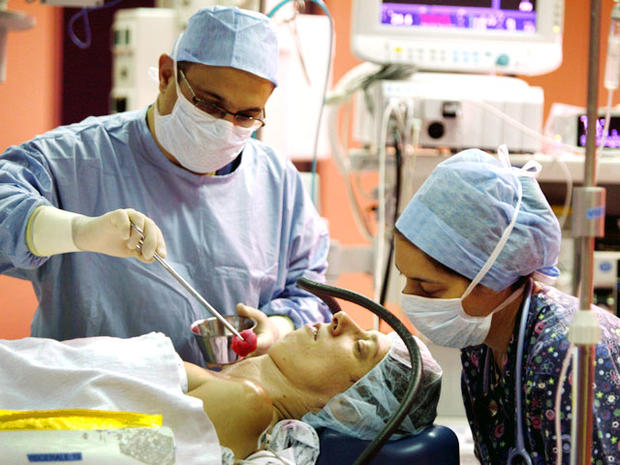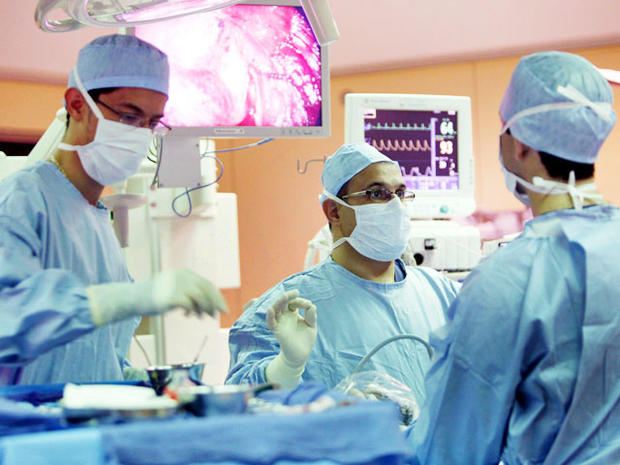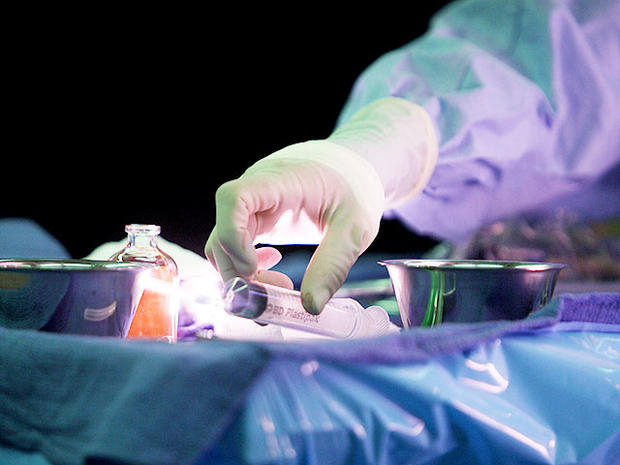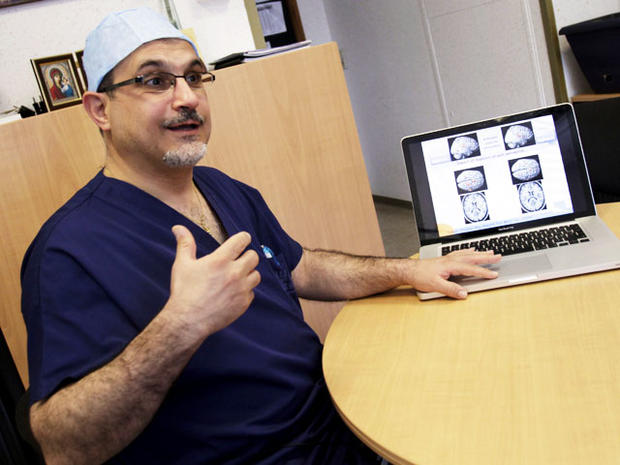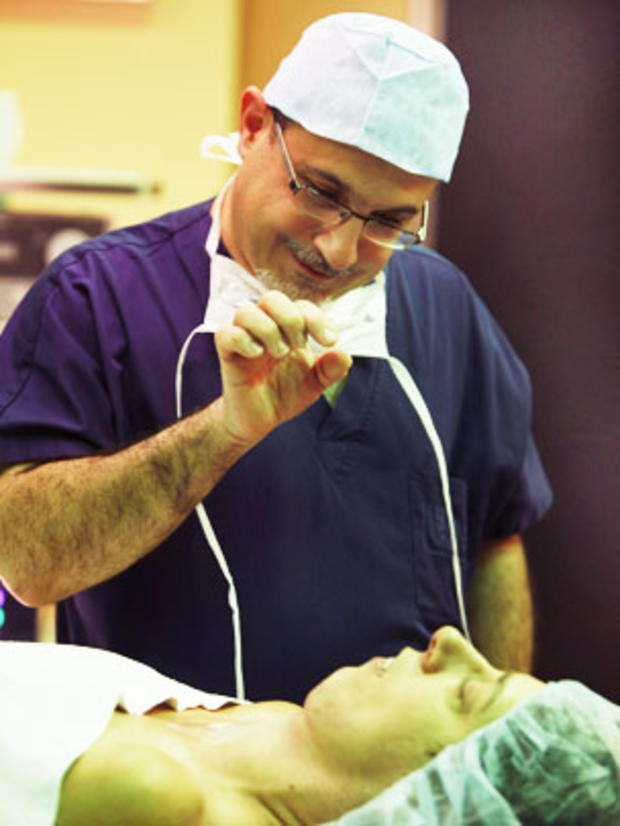Hypnosis: The new anesthetic?
Can you imagine going through major surgery without general anesthesia? That's what Christel Place (left) did when she had her thyroid removed - and she's one of a growing number of patients who opt out of general anesthesia and get hypnotized instead. Hypnosis plus a local anesthetic leaves patients sedated but aware, reports the Associated Press, and doctors say their recovery time is faster and their need for painkillers reduced. This method is feasible for only certain operations, of course - not those involving the heart or internal organs.
For her surgery at the hospital Cliniques Universitaires St. Luc in Brussels, Belgium, Place pictured herself hiking in the French Alps while surgeons sliced her neck open.
Doctors say nearly any surgery usually done with a local anesthetic could work with hypnosis and less pain medicine. Since doctors began offering hypnosis at the hospital in 2003, hundreds of patients have chosen it. At another Belgian hospital, more than 8,000 surgeries have been done this way since 1992.
Dr. Michel Mourad performs thyroid surgery on Place.
Surgery to solve thyroid problems is usually done with either local or general anesthesia and is considered low risk.
Dr. Mourad speaks with the Associated Press regarding the benefits of thyroid surgery under hypnosis.
In the U.S., there are no guidelines on the surgical use of hypnosis, according to president of the American Society of Anesthesiologists Dr. Mark Warner. Dr. Warner often uses music therapy or asks patients to picture a soothing scene to distract them from any discomfort. "If we could get more research on the right patient groups that would benefit from (hypnosis), that would be wonderful," he said.
Anesthesiologist Dr. Fabienne Roelants, right, monitors Place during her surgery.
Dr. Roelants described hypnosis as a modified state of consciousness. "The patient's mind goes to a pleasant place, but the body stays in the operating room." At Roelants' hospital, one-third of all surgeries to remove thyroids and one-quarter of all breast cancer surgeries, including biopsies and mastectomies, use hypnosis and local anesthetic.
Roelants said if patients feel any pain during the procedure, anesthetists immediately give them a painkiller shot.
Dr. Mourad speaks with Place after her surgery.
Using hypnosis means patients recover faster and hospitals save money, according to some studies. But it may require doctors to spend more time with patients beforehand to do the hypnosis and they may need more careful monitoring during surgery.
Place said waking up from the surgery was more abrupt than she'd expected. "It was like I was really in the mountains and then 'poof,' it was over," Place said, laughing.
